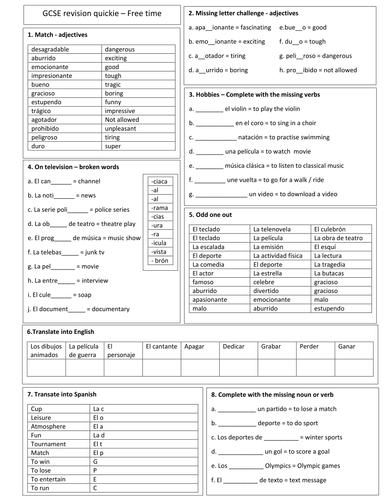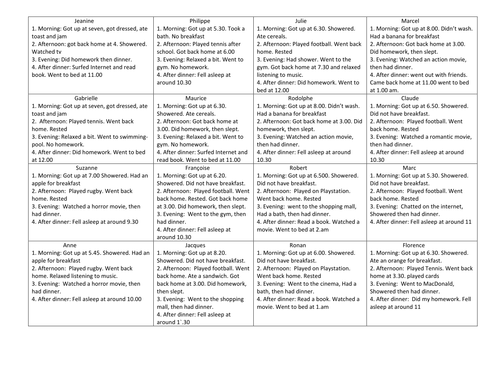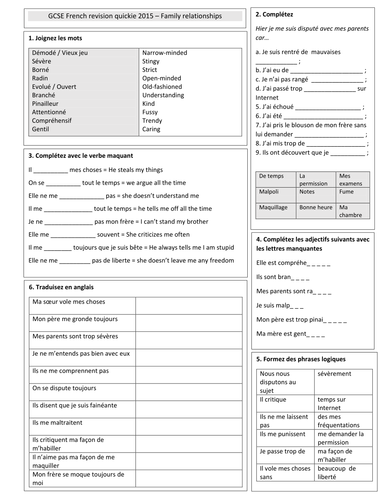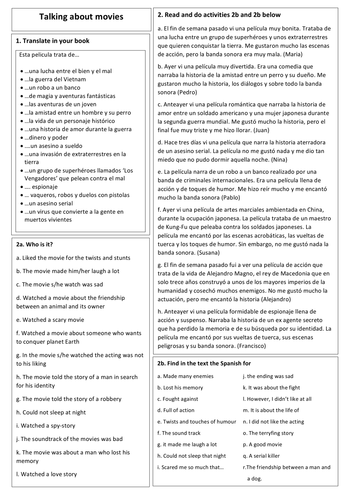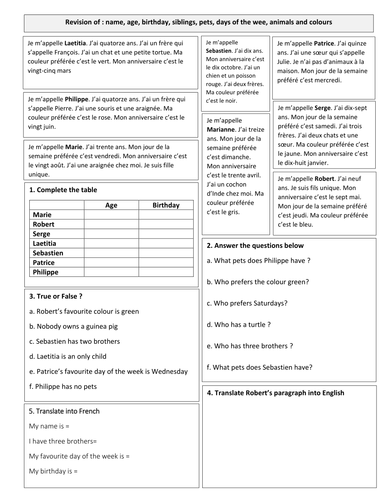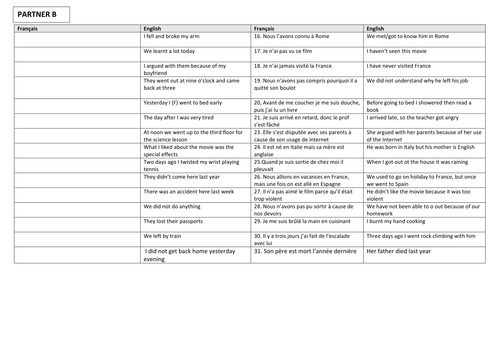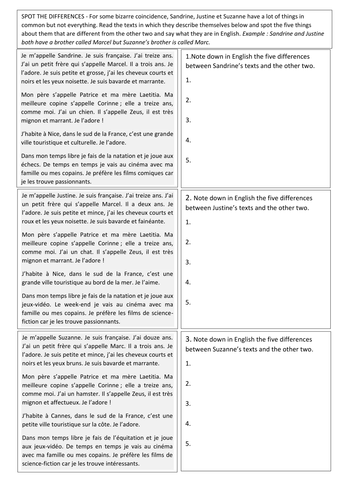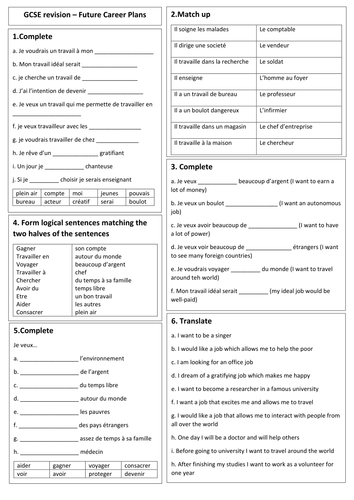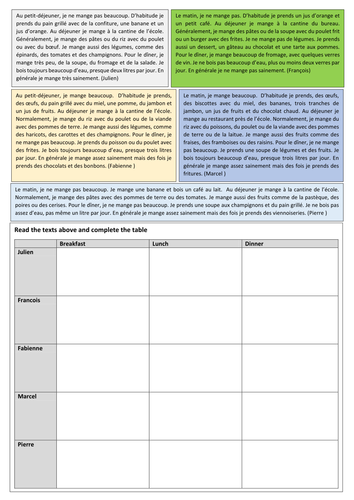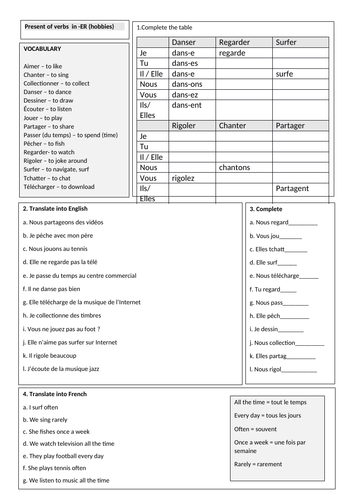
383Uploads
3148k+Views
5746k+Downloads
French

Activities on the song 'J'ai pas appris' by Judith
Listening activities and wordbuilder on Judith's song &'J&';ai pas appris'.

KS3/4 French Speaking - Find someone who /interview with cards
Students to ask questions in French and answer in French even though cards have prompts in English. Cards can be used for both the find-someone-who activities and the interviews.

KS3 French : Describing people - communicative drills
A set of communicative oral translation drills to practise French adjectives with bilingual word lists

KS4 Spanish - Talking about movies (reading comp)
A list of useful phrases for talking about films and short narrow reading texts for comprehension.

Absolute beginners French - Narrow reading on basics
Narrow reading + comprehension tasks on basics. Lots of recycing

GCSE revision - Oral ping-pong translation__perfect tense
Another oral ping-pong translation
INSTRUCTIONS - The students work in pairs. They have a sheet with the same English sentences to translate into French, but Partner A has the translation of sentences 1 to10, whereas Partner B has the translation of sentences 11 to 20.
I call it 'Oral ping-pong translation' because they do it orally, Partner A challenging Partner B with a sentence and showing the correct answer to provide them with feedback and to award points (3 for perfect sentence, 2 for one mistake only, 1 if there are mistakes but at least the verb is correctly formed). I give them a time limit (10 minutes); when the time is up the person with the higher score wins. Best to have people of similar ability in each pair. Here is an example: I made for a very able year 11 of mine. Obviously the activity can be done in writing too.
As a follow-up, I get the students to make a note of the most serious mistakes they made in their books so that I have an idea of what their problem areas are. Differentiation opportunities are obvious: different sets of sheets for groups of different ability

GCSE French - Narrow reading tasks on health
6 narrow reading texts a la Conti with a set of seven tasks to exploit them as much as possible . The texts recyle very similar vocabulary to death whilst providing useful model phrases/sentences including some handy idioms. I have used it successfully with my students and they were fully engaged.

GCSE French Grammar Revision quickie 1 - Present of high-frequency irregular verbs (with solutions)
A consolidation sheet packed with activities designed to recycle the present form of the main irregular verbs to death.

Year 7/8 French - Narrow reading tasks on general description
Three narrow reading texts exploited through 4 different narrow reading tasks

KS3/4 French - Irregular Perfect tense (sentence builder, translation and drills)
Typical Cont-style resources on the Irregular perfect tense

KS3/4 French - Sentence builder to introduce comparatives
A sentence builder to introduce the comparatives.

Year 7 / 8 French - Oral board game on high-frequency school-related phrases
Instructions: In groups of three students (2 player + 1 referee) or five (2 teams of two players and one referee), players take turn in casting the dice. Whichever case the player/team reach based on their dice score, they will have 30 seconds to translate the relative sentence(s) into French orally. The referee will then tell the players (with the help of the answer sheet) if their translation is correct. If the translation is correct they will have another go and casting the dice and will advance to the next case where they will have to translate the next sentence and so on. However, if their translation isn’t correct, the referee will read to them the right version twice in order for the players to attempt to memorize it for the next round when they will have another go. After the opponents’ turn the player will have another chance at casting the dice; if they answer the question they originally got wrong correct. The person who is closer to the finishing line ten minutes into the game will win.

GCSE Grammar revision quickie with SOLUTION on PERFECT TENSE in the context of SCHOOL LIFE
Consolidation sheet with answer key

Beginner French - Narrow reading texts on food
A set of narrow reading texts on food with a comprehension activity




